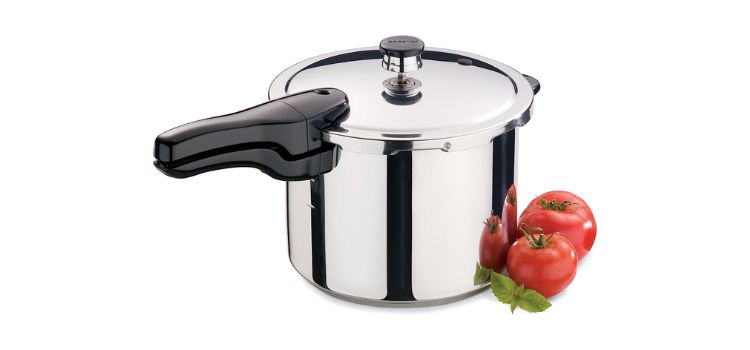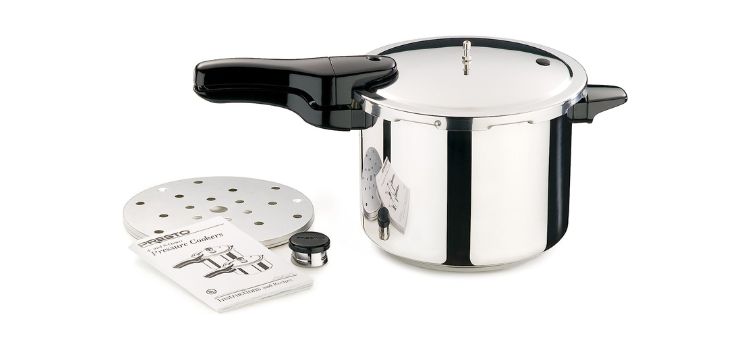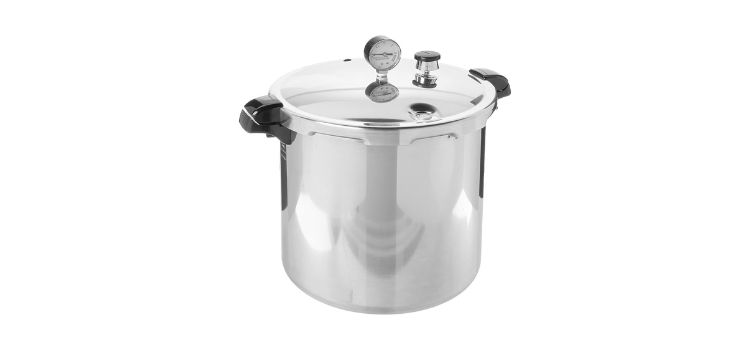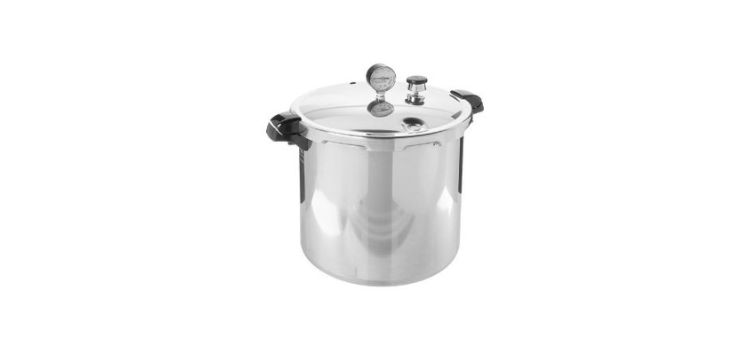As an Amazon Associate, I earn from qualifying purchases

In the world of modern cooking, pressure cookers have become indispensable appliances, allowing us to prepare meals more efficiently. However, one crucial factor often overlooked is the material from which the pressure cooker is made. The choice of pressure cooker material can have a significant impact on your health and the quality of your cooked food. In this article, we’ll delve into the various pressure cooker materials available and explore Which Pressure Cooker Material is Good for Health?
1. Types of Pressure Cooker Materials

1.1 Stainless Steel
Stainless steel, often hailed for its durability and resistance to corrosion, makes an excellent choice for health-conscious individuals. Its non-reactive nature ensures that no harmful substances leach into your food during cooking. Stainless steel pressure cookers are also less likely to warp or scratch, making them a safe and long-lasting option.
1.2 Aluminum

Aluminum pressure cookers are known for their excellent heat conduction properties, allowing for fast and efficient cooking. However, concerns have arisen regarding the potential health risks associated with aluminum. While these cookers are lightweight and affordable, it’s essential to consider the impact of aluminum potentially entering your food.
1.3 Nonstick Coated
Nonstick coated pressure cookers offer convenience in cooking and cleaning. The nonstick surface requires less oil, making it an appealing option for those looking to reduce fat intake. However, there are debates about the safety of nonstick coatings at high temperatures. Ensuring the integrity of the coating over time is crucial to avoid any potential health hazards.
2. Which Pressure Cooker Material is the Healthiest?

When it comes to prioritizing health, stainless steel emerges as the winner among pressure cooker materials. Its inert nature ensures no unwanted substances seep into your meals. The non-reactive surface preserves the natural flavors and nutritional value of the ingredients, making your meals not only safe but also delicious.
3. The Benefits of Stainless Steel Pressure Cookers

Opting for a stainless steel pressure cooker grants you several advantages. Not only are they resistant to staining and rusting, but they also excel in retaining heat and distributing it evenly. This feature not only cuts down on cooking time but also conserves energy. Stainless steel cookers are a great investment in the long run, as they are durable and require minimal maintenance.
4. Aluminum Pressure Cookers and Health Concerns
While aluminum pressure cookers are popular for their affordability and quick cooking abilities, concerns exist about the potential health risks. Studies suggest that a significant amount of aluminum could leach into your food, especially when cooking acidic dishes. Prolonged exposure to high levels of aluminum intake may have adverse effects on health, making stainless steel a safer alternative.
Learn About Is Cherry Wood Good for Cutting Boards?
5. Cooking with Nonstick Pressure Cookers
Nonstick pressure cookers are a favorite for those who prefer cooking with less oil. The slick surface prevents food from sticking and simplifies the cleaning process. However, using nonstick cookware at high temperatures could release toxic fumes and substances. Ensuring your nonstick coating is intact and using it within recommended temperature limits can mitigate these risks.
6. Choosing Longevity and Sustainability
When making your pressure cooker selection, remember that stainless steel not only caters to your health but also offers longevity and sustainability. Its robust construction ensures it can withstand the test of time, reducing the need for frequent replacements. Additionally, stainless steel is a recyclable material, contributing to a greener environment.
7. Maintaining Your Pressure Cooker
To ensure the longevity and safety of your pressure cooker, follow these maintenance tips:
- Regularly inspect the sealing ring and safety valves.
- Clean your cooker after each use to prevent residue buildup.
- Avoid using abrasive cleaning materials that can damage the surface.
- Store your pressure cooker with its lid slightly open to prevent odors.
Conclusion
In the quest for a healthier cooking experience, choosing the right pressure cooker material is paramount. While aluminum and nonstick options offer their conveniences, stainless steel stands out as the material that combines health, durability, and sustainability. Investing in a high-quality stainless steel pressure cooker can revolutionize your cooking routine while keeping your well-being in mind.
FAQs About Which Pressure Cooker Material is Good for Health?
Yes, aluminum pressure cookers excel in rapid and even cooking due to their excellent heat conduction properties.
While convenient, nonstick coatings may release toxic substances at high temperatures. Proper usage and care are essential to ensure safety.
Yes, stainless steel cookers can handle metal utensils without the risk of scratching or damaging the surface.
Yes, stainless steel cookers are generally heavier due to their robust construction, but the weight contributes to their durability and heat retention.
Yes, certain materials can react with acidic or alkaline foods, altering their taste. Stainless steel is inert and preserves the original flavors of your dishes.
Las Word
Now armed with knowledge about pressure cooker materials, you can confidently choose the best option for your health and cooking needs. Happy and healthy cooking!
Leave a Reply